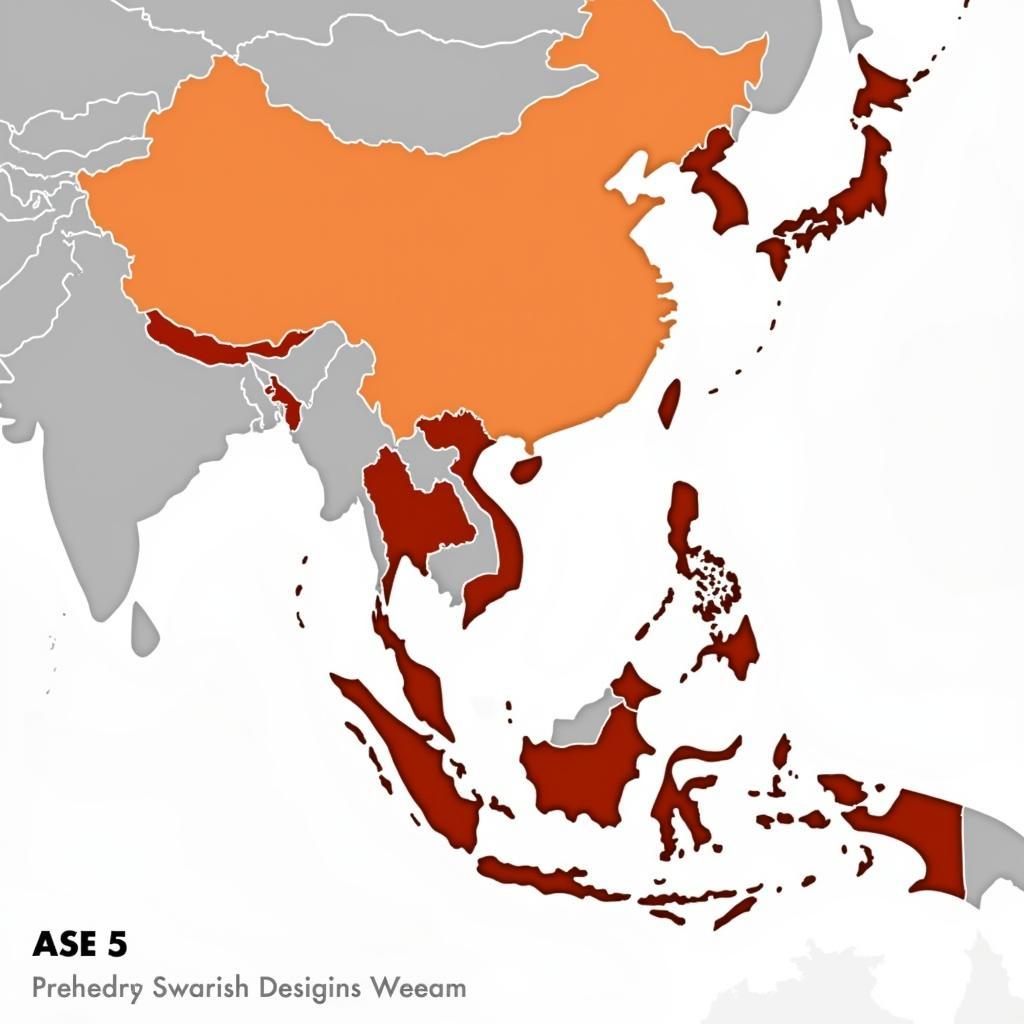Asean And The Securitization Of Transnational Crime In Southeast Asia is a complex and evolving issue. The region’s interconnectedness, porous borders, and diverse legal systems create an environment conducive to various illicit activities. These range from drug trafficking and human smuggling to cybercrime and environmental crime, posing significant challenges to regional security and stability.
The Growing Threat of Transnational Crime in Southeast Asia
The strategic location of Southeast Asia, acting as a bridge between major continents, has unfortunately made it a hub for transnational criminal networks. These networks exploit the region’s vulnerabilities, undermining governance, hindering economic development, and fueling social instability. The rise of technology has further complicated the landscape, enabling criminals to operate across borders with greater anonymity and efficiency.
What are the major types of transnational crime affecting ASEAN? Drug trafficking, particularly of methamphetamine, remains a major concern. The Golden Triangle, where the borders of Laos, Myanmar, and Thailand meet, continues to be a significant source of illicit drug production. Human trafficking, often linked to forced labor and sexual exploitation, is another pressing issue. Furthermore, the rise of cybercrime, including online fraud and data theft, poses a growing threat to individuals, businesses, and governments across the region.
ASEAN’s Response: Collaborative Efforts and Regional Initiatives
ASEAN has recognized the seriousness of transnational crime and has undertaken various initiatives to address this multifaceted challenge. The ASEAN Political-Security Community (APSC) Blueprint, for example, outlines key priorities and action plans to enhance regional cooperation in combating transnational crime. These include strengthening law enforcement cooperation, improving information sharing, and harmonizing legal frameworks.
How effective are ASEAN’s efforts? While progress has been made, challenges remain. Differences in legal systems and varying levels of capacity among member states can hinder effective implementation. Moreover, the clandestine nature of transnational criminal networks makes it difficult to track and disrupt their activities.
The Securitization Debate: Balancing Security and Human Rights
The securitization of transnational crime, while necessary, raises important questions about the balance between security and human rights. Increased surveillance and stricter border controls, while potentially effective in disrupting criminal activities, can also infringe on individual freedoms and privacy. It is crucial for ASEAN to ensure that its security measures are proportionate, respect human rights, and adhere to the rule of law.
What are the ethical implications of securitization? Overly aggressive security measures can lead to the targeting of vulnerable groups and the erosion of civil liberties. It is essential for ASEAN to prioritize human rights and ensure that its efforts to combat transnational crime do not inadvertently exacerbate existing inequalities or create new forms of injustice.
The Role of International Cooperation: Engaging Partners Beyond ASEAN
Addressing transnational crime effectively requires collaboration beyond the ASEAN region. Partnerships with international organizations, such as the United Nations and Interpol, as well as with individual countries, are essential for sharing best practices, providing technical assistance, and enhancing capacity building.
Why is international cooperation crucial? Transnational crime, by its very nature, transcends national borders. Effective responses require coordinated efforts among various stakeholders, including governments, law enforcement agencies, civil society organizations, and the private sector.
Looking Ahead: Strengthening ASEAN’s Response to Transnational Crime
ASEAN and the securitization of transnational crime in Southeast Asia remains a work in progress. Strengthening regional cooperation, enhancing information sharing, and promoting greater public awareness are critical for effectively addressing this complex challenge. Furthermore, fostering trust and building stronger partnerships within and beyond the region will be essential for achieving lasting solutions.
Conclusion:
ASEAN and the securitization of transnational crime in Southeast Asia demands a comprehensive and collaborative approach. By strengthening regional mechanisms, engaging international partners, and prioritizing human rights, ASEAN can effectively combat this evolving threat and contribute to a more secure and prosperous future for the region.
FAQ:
- What is the ASEAN Political-Security Community (APSC)?
- How does transnational crime impact ASEAN economies?
- What are the main challenges in combating transnational crime in Southeast Asia?
- What is the role of technology in facilitating transnational crime?
- How can ASEAN enhance its cooperation with international partners?
- What are the human rights implications of securitizing transnational crime?
- What are some examples of successful ASEAN initiatives in combating transnational crime?
Related Articles:
- The Impact of Cybercrime on ASEAN Businesses
- Human Trafficking in Southeast Asia: Challenges and Solutions
- ASEAN’s Role in Combating Drug Trafficking
- The Future of Regional Security Cooperation in Southeast Asia
Need Support? Contact us 24/7: Phone: 0369020373, Email: aseanmediadirectory@gmail.com or visit us at: Thon Ngoc Lien, Hiep Hoa, Bac Giang, Vietnam.

